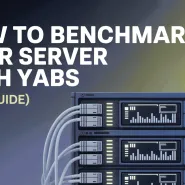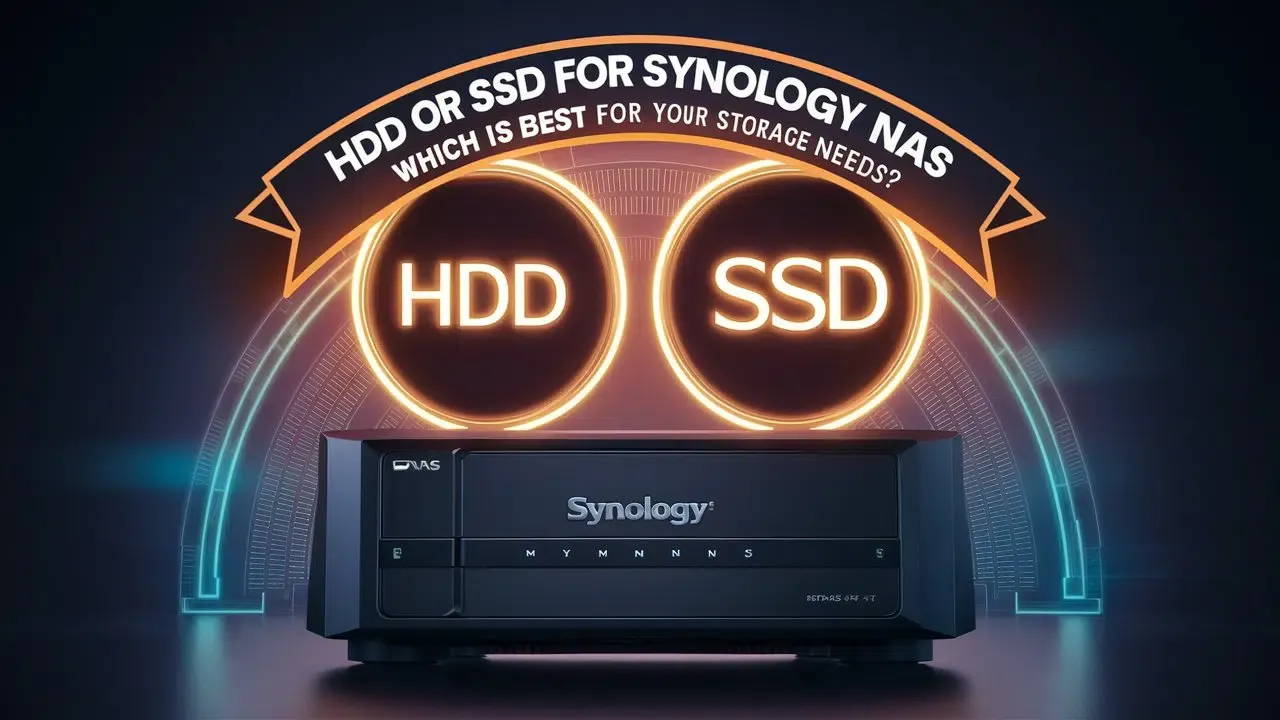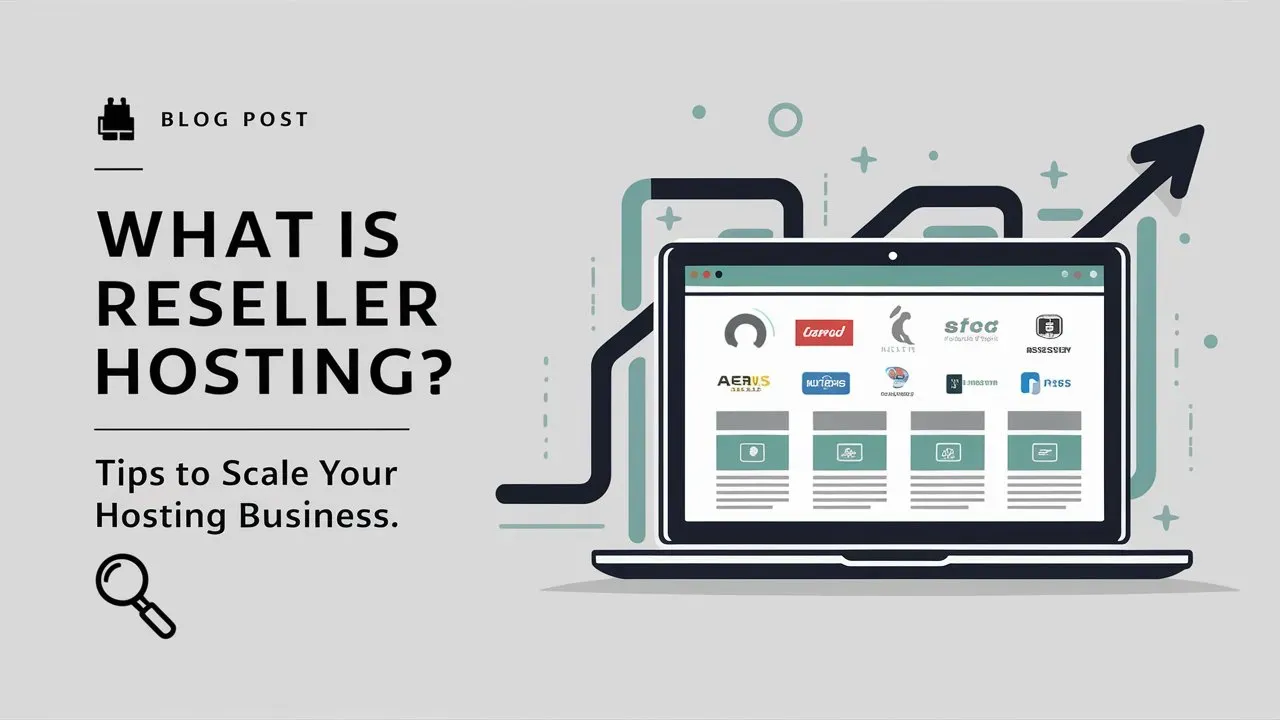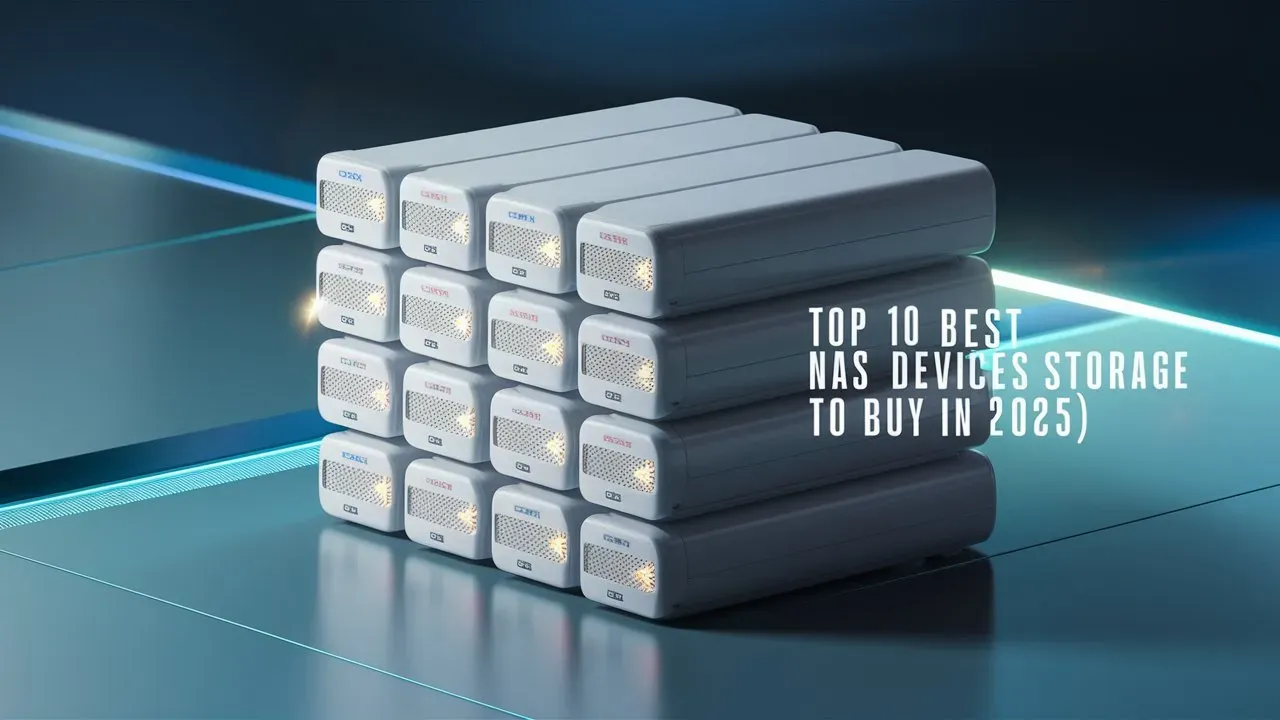If you are running a Synology NAS, selecting the appropriate storage recommendation could help managing data efficiently. For Synology NAS systems, the choice of HDD or SSD has a profound implication in terms of performance, price, and reliability. Each storage type comes with benefits and possible downside, and the decision is critical for any individual who are considering to take full advantage of their NAS (network-attached storage).
Hard Disk Drives (HDDs) have always been a popular option due to their low price per gigabyte and large capacities. These storage types are best suited for users that are looking to pay less while having a large space for their data. The mechanical nature of HDDs can therefore be their limitation in terms of speed and especially the durability.
For example, if you have Synology NAS to running then picking the right storage recommendation is could manage the data efficiently. Whether the Synology NAS systems uses HDD or SSD has an impact in performance, price and reliability. Each of which offers advantages and disadvantages, making this choice a critical one for anyone looking to get the most out of their NAS (network-attached storage).
Probably the most popular option due to their low price per gigabyte and large capacity: Hard Disk Drives – (HDDs). These storage types are more appropriate for the users who want to pay less and have an extensive amount of space for their data. This means the limitation of HDDs resides within their mechanical nature; they’re simply not fast, and especially the durability.

Introduction to Synology NAS Device :
Synology Inc. is a Taiwanese company that specializes in designing the network-attached storage (NAS) devices. They are founded in the year 2000. Synology uses a rich operating system called DiskStation Manager (DSM), which provides a friendly interface for users and a range suite of applications for data management, backup, restore, storing, and multimedia purposes. Synology NAS devices can be used for personal, business or enterprise for storage solutions. They also offers features like protection of data through advanced security.

Benefits Of Synology NAS Devices :
Synology has built a strong reputation for its user-friendly interface, high performance, and extensive software ecosystem. Here are some of the key benefits of Synology:
- Scalability : Synology NAS devices are designed to grow according to your needs. Many models support expansion units, allowing you to increase your storage capacity without replacing your existing device.
- User-Friendly Interface : Synology’s uses DiskStation Manager (DSM) that is one of the most intuitive and easy-to-use NAS operating systems on the market. DSM offers a smooth user experience, even for those who are not used any NAS device earlier.
- Software Ecosystem : DSM comes with a rich range of applications, including Synology Drive, Synology Moments, and Synology Office, which transforms the NAS device into a multi-functional device for file management, photo organization, and office productivity.
- Data Protection : Synology offers advanced data protection features such as RAID configurations, snapshot technology, and backup solutions. The Hyper Backup tool allows for multi-version backups to various destinations, including public clouds.
- Security Feature : With features like 2-factor authentication, firewall, and antivirus, Synology ensures that your data is well-protected against unauthorized access and cyber threats.
HDD or SSD: Understanding the Basics
Configuring a NAS (Network Attached Storage) involves many of the important decisions, and one of the most critical is choosing between the HDD or SSD. Ultimately, both have their strengths and weaknesses, so understanding the fundamentals is key to choosing what’s right for your setup.

What are HDDs?
HDDs, or Hard Disk Drives, are classic storage devices that write data to rotating metal disks magnetically. Like a turntable reading a vinyl record, a read/write head moves across these platters to access or write data.

How It Works:
- It is magnetic in nature that helps to write and read data making it high storage capacity for less price.
- Since HDDs have moving parts such as spinning platters and a read/write head, they are mechanical.
Key Characteristics of HDDs:
- High Capacity: HDDs are capable of storing massive amounts of data, with sizes ranging from 500GB to over 20TB. This makes them ideal for users who require bulk storage for backups, large files, or extensive media libraries.
- Cost-Effective: HDDs offer the lowest cost per GB, making them an excellent choice for those on a budget or prioritizing storage space over speed.
- Durability Concerns: Due to their mechanical design, HDDs are more susceptible to physical damage from shocks or vibrations, which can lead to data loss.
- Slower Performance: While adequate for sequential tasks like large file transfers, HDDs have slower read/write speeds and higher latency compared to SSDs.
Common Use Cases for HDDs:
- NAS backups: Long-term storage of important files.
- Media libraries: Storing movies, music, and photos.
- Archiving: Retaining infrequently accessed data.
When considering HDD or SSD for a NAS, HDDs are generally better for users prioritizing large-scale, cost-effective storage.
What is an SSD?
An SSD is like a super-fast USB stick. It doesn’t have moving parts—it stores everything electronically in tiny memory chips. That makes it much faster and more durable than an HDD.

How It Works:
- SSDs store data in NAND flash memory cells, which can be accessed almost instantaneously.
- Without mechanical components, SSDs achieve faster data transfer speeds and greater energy efficiency.
Key Characteristics of SSDs:
- Blazing Speed: SSDs provide much faster read and write speeds, ranging from 500 MB/s to over 7000 MB/s, depending on the model (e.g., SATA SSDs vs NVMe SSDs). This makes them ideal for tasks requiring high performance.
- Durability and Reliability: With no moving parts, SSDs are resistant to physical shocks, vibrations, and wear, leading to lower failure rates.
- Compact Size: SSDs are smaller and lighter than HDDs, making them suitable for compact NAS systems or devices with limited space.
- Higher Cost: SSDs have a higher cost per GB compared to HDDs, though prices have been steadily declining in recent years.
- Limited Lifespan: SSDs have a finite number of write cycles, but modern SSDs are built to last for years under typical workloads.
Common Use Cases for SSDs:
- High-speed caching: Improving NAS performance by storing frequently accessed files.
- Virtual machines: Hosting databases or running virtualized environments.
- Frequent data access: Suitable for workloads with heavy read/write operations.
HDD or SSD : Key Differences in Features
| Feature | HDDs | SSDs |
|---|---|---|
| Technology | Spinning platters, mechanical | Flash memory, electronic |
| Speed | 150-250 MB/s | 500-7000 MB/s |
| Durability | Prone to damage from shocks | Resistant to physical shocks |
| Capacity | Up to 20TB or more | Typically 1-8TB |
| Cost per GB | Lower | Higher |
| Noise | Produces audible sound | Silent operation |
| Power Consumption | Higher | Lower |
Which Should You Choose? HDD or SSD
- Choose HDDs if you need:
- Affordable, high-capacity storage.
- A reliable solution for backups and media storage.
- Choose SSDs if you need:
- High-speed performance for data-intensive applications.
- A durable and energy-efficient storage option.
Can You Combine HDD or SSD?
Yes! Many NAS systems, like those from Synology, support hybrid storage setups, allowing you to use:
- SSDs for caching to boost performance.
- HDDs for bulk storage to balance cost and capacity.
Comparison Between HDD or SSD For Your Storage Needs :

When it comes to choosing between HDD or SSD for your storage needs, it’s important to understand how they compare in key areas like performance, capacity, cost, and reliability. Both have their strengths, and the right choice depends on what you’re using your storage for. Let’s dive in!
1. Performance Comparison : HDD or SSD?
When it comes to performance, HDD or SSD, the difference is clear. SSDs are much faster and work better for tasks that need quick data access. Let’s break it down in simple terms so you can see why SSDs usually outperform HDDs.
- Speed (Read/Write) :
- HDD: HDDs are slower. They usually read and write data at speeds between 80 MB/s to 160 MB/s. While this is fine for basic tasks like storing files, it can feel slow when you need faster performance, like loading big files or running apps.
- SSD: SSDs are much faster. Even the basic SSDs can read and write data at 500 MB/s to 600 MB/s. The faster NVMe SSDs can go as high as 3500 MB/s to 7000 MB/s, making them 5–40 times faster than HDDs.
- Boot and Load Times :
- HDD: When you boot up your computer or load programs from an HDD, it can take around 30 seconds or more. The process is slower, and you’ll notice delays when opening big files.
- SSD: SSDs can boot your system in under 10 seconds. They also load apps and files almost instantly, making your whole system feel faster.
- Access Times :
- HDD: HDDs are slower at accessing data because they have moving parts. It takes extra time for the drive to find and access the data you need, especially when it’s spread out across the drive.
- SSD: SSDs are super fast at accessing data since there are no moving parts. They can grab the data you need almost instantly, making everything run smoother, especially when you’re working with lots of small files.
- Latency (Delay) :
- HDD: The time it takes to get the data from an HDD (called latency) is around 10-15 milliseconds. That might sound quick, but it’s slower than an SSD.
- SSD: SSDs have very low latency, usually under 0.1 milliseconds. This means they respond much faster, so tasks like opening files or switching between apps happen instantly.
- Multitasking :
- HDD: If you try to do many things at once on an HDD, like opening multiple files or running different programs, it can slow down. Since the drive has to physically move parts to access data, it gets slower with more tasks.
- SSD: SSDs handle multitasking effortlessly. You can open files, run apps, and do other tasks at the same time without slowing down. They’re great for setups where you need to do a lot of things quickly.
- Real-World NAS Performance :
- HDDs: Best for tasks like storing backups or keeping media libraries. They work fine for simple file storage, but when you need to quickly access files or handle multiple users, they can feel slow.
- SSDs: SSDs are better for high-demand tasks like running apps, hosting databases, or streaming data. They can handle heavy workloads and make everything run faster, especially in NAS systems with lots of data being accessed at once.
If speed is what you need—whether for booting up your system, loading files, or running apps—SSDs are the way to go. They’re faster, more responsive, and handle multitasking better. However, if you just need a lot of storage at a lower price, and speed isn’t as important, HDDs still get the job done.
In short, HDDs are good for storage on a budget, while SSDs are perfect if you need fast, reliable performance.
2. Capacity Considerations : HDD or SSD?
When thinking about storage size, HDD or SSD offer different options:
- HDDs can go up to 20TB or more, making them the best choice for storing a huge amount of data, like photos, videos, or backups.
- SSDs, while growing in size, typically max out around 8TB for consumer models. If you need a ton of space, HDDs are the way to go.
However, for smaller storage needs or a NAS setup that focuses on speed and reliability, SSDs provide plenty of options.
3. Cost Analysis : HDD or SSD?
In terms of cost, HDDs are the clear winner in HDD or SSD if you need massive storage at an affordable price. They provide great value for bulk storage needs, especially for long-term archiving or backups.
However, SSDs offer speed and durability, and while they may come at a higher cost, they can be worth the investment for performance-critical tasks. Additionally, the hybrid storage approach—using SSDs for speed and HDDs for storage—offers a balanced solution without compromising on either performance or cost.
So, when choosing between HDD or SSD, consider:
- Your storage needs: Is large capacity more important, or do you need speed?
- Your budget: Are you willing to spend more upfront for faster speeds or reliability?
- The long-term value: Would the durability and performance of an SSD justify the cost difference over time?
By weighing these factors, you’ll be able to make the right decision for HDD or SSD based on your specific storage needs.
4. Reliability and Durability: HDD or SSD?
When it comes to durability, SSDs take the lead. Without moving parts, SSDs are more resistant to physical damage and have lower failure rates. This makes them ideal for laptops, portable NAS setups, or environments where vibrations might be an issue.
HDDs, being mechanical, are more prone to wear and tear over time. They can last for years but are at greater risk of failure due to shock or movement. However, for stationary setups like home NAS systems, they’re still a reliable option.
FAQs about HDD or SSD for Synology NAS :
If you’re setting up a Synology NAS, you might be wondering whether to choose an HDD or SSD. Here are some common questions to help you decide :
Can I Use Both HDD and SSD in My Synology NAS?
Yes, you can! Many Synology NAS models support a combination of both. This setup is often called a hybrid storage solution:
Is SSD Better Than HDD for NAS Performance?
Yes, SSDs are faster than HDDs. They offer quicker read/write speeds, better latency, and smoother performance for tasks.
Which is More Durable: HDD or SSD?
HDDs have moving parts, like spinning disks, that can wear out or get damaged from drops or vibrations.
SSDs, with no moving parts, are shockproof and more reliable over time.
If your Synology NAS is in a secure location and mainly for backups, an HDD is still a reliable choice.
Are SSDs Worth the Extra Cost for Synology NAS?
It depends on your needs. SSDs are more expensive than HDDs, but they’re worth the investment if:
1. You need faster performance for tasks like video editing or running applications.
2. You want a quieter, energy-efficient setup.
If you’re prioritizing affordable, high-capacity storage, HDDs are the better choice.
Are HDDs Noisy Compared to SSDs?
Yes, HDDs can be noisy because of their spinning disks and moving parts. This may not be an issue in a dedicated office or server room.
Can I Upgrade from HDD to SSD Later?
Yes, you can upgrade! Synology NAS systems are flexible, allowing you to start with HDDs and later switch to SSDs or add an SSD cache to boost performance.
What’s Better for Streaming: HDD or SSD?
For streaming media files, like movies or music, an HDD is usually sufficient. It provides:
1. High capacity for storing large libraries.
2. Enough speed for smooth playback.
If you’re hosting 4K videos or multiple streams, adding an SSD cache can improve performance.
Conclusion: Making the Right Choice for HDD or SSD NAS Storage :
Choosing between HDD or SSD for your Synology NAS depends on your specific needs, budget, and priorities. If you’re looking for cost-effective, high-capacity storage for backups or media libraries, HDDs are an excellent choice. They offer a great balance of storage size and affordability, perfect for users who need large-scale storage without breaking the bank.
On the other hand, if performance, speed, and durability are your main concerns, SSDs are the way to go. They deliver blazing-fast read/write speeds, reliable performance, and silent operation. For tasks like running virtual machines, hosting databases, or frequent file access, SSDs make a significant difference in overall NAS efficiency.
A hybrid setup with HDD or SSD can also be a smart solution. Using SSDs for caching and HDDs for bulk storage lets you enjoy the best of both worlds—speed and capacity. This combination ensures your NAS performs optimally without overspending.
When deciding on HDD or SSD, consider:
- Your workload – For speed-critical applications, SSDs shine; for backups, HDDs suffice.
- Budget – HDDs are more economical, while SSDs provide better long-term performance.
- Reliability – SSDs win for durability, but HDDs remain a reliable choice for stationary setups.
Ultimately, the choice of HDD or SSD depends on how you use your Synology NAS. Evaluate your needs carefully, and you’ll be able to pick the ideal storage solution that perfectly aligns with your requirements. Whether you go for HDD, SSD, or both, Synology NAS devices ensure seamless integration to make data storage efficient and reliable.
Checkout Top 4 Best NAS Backup Strategies for Effective Data Protection
Discover more from Owrbit
Subscribe to get the latest posts sent to your email.











